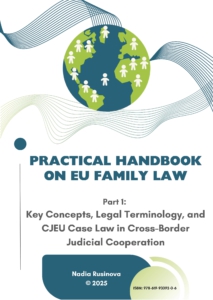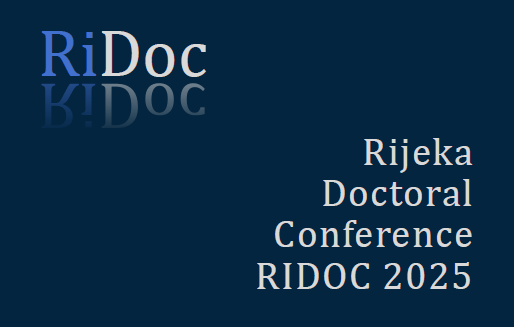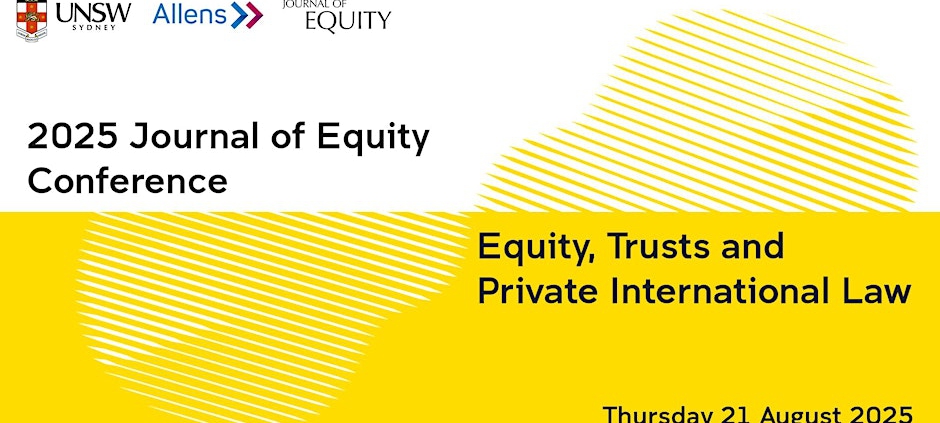Views
Opinion of AG de la Tour in C-713/23, Trojan: A step forward in the cross-border recognition of same-sex marriages in the EU?
Dr. Carlos Santaló Goris, Postdoctoral researcher at the University of Luxembourg, offers an analysis of the Opinion of Advocate General de la Tour in CJEU, Case C-713/23, Trojan
From Coman to Trojan
On 5 June 2018, the Court of Justice of the European Union (‘CJEU’) rendered its judgment in the case C-673/16, Coman. In this landmark ruling, the CJEU decided that Member States are required to recognize same-sex marriage contracted in another Member Stated to grant a residence permit to the non-EU citizen spouse of an EU citizen under the EU Citizens’ Rights Directive. The pending case C-713/23, Trojan goes a step further than C-673/16, Coman. On this occasion, the CJEU was asked whether EU law requires a civil registry of Poland, a Member State that does not provide any form of recognition to same-sex couples, to transcribe the certificate of same-sex marriage validly contracted in another Member State. A positive answer would imply that the same-sex marriage established under German law would be able to deploy the same effects as a validly contracted marriage under Polish law. While the CJEU has not yet rendered a judgment, on 3 April 2025, Advocate General de la Tour issued his Opinion on the case. While the CJEU might decide differently from AG de la Tour, the Opinion already gives an idea of the solution that might potentially be reached by the CJEU. This post aims to analyse the case and explore its implications should the CJEU side with AG de la Tour. Read more
A New Precedent in Contract Conflicts: Decoding the Tyson v. GIC Ruling on Hierarchy Clauses
By Ryan Joseph, final-year BBA LLB (Hons) student, Jindal Global Law School, India.
Introduction
The recent decision of the UK High Court (“Court”) in Tyson International Company Limited (“Tyson”) v. General Insurance Corporation of India (“GIC”) sets a critical precedent for cases that lie at the intersection of arbitration, contractual hierarchy, and judicial intervention through anti-suit injunctions. The principal issue in the case revolved around the harmonious application of two conflicting dispute resolution clauses contained in two separate agreements pertaining to the same transaction. While one provided for dispute settlement through arbitration seated in New York, the other was an exclusive jurisdiction clause that provided for dispute settlement by England and Wales courts. To resolve this apparent conflict between the two clauses, the Court relied on a confusion clause (also known as a hierarchy clause) in the parties’ agreement to rule that the exclusive jurisdiction clause, in favour of England and Wales courts, prevails over the arbitration clause. Based on this conclusion, the Court issued an anti-suit injunction against GIC from arbitrating the dispute in New York. Read more
Australian Federal Court Backs India on Sovereign Immunity: Another Twist in the Devas v. India Saga
by Shantanu Kanade, Assistant Professor, Dispute Resolution, Jindal Global Law School, India
The Federal Court of Australia (“Federal Court”), in its recent judgement in the Republic of India v. CCDM Holdings, LLC[1] (“Judgement”), held that the Republic of India (“India”) was entitled to jurisdictional immunity from Australian Courts in proceedings seeking recognition and enforcement of foreign arbitral awards dealing with disputes arising from ‘non-commercial’ legal relationships. The Court’s judgment was rendered with respect to an appeal filed by India against an interlocutory judgement of a primary judge of the same court, rejecting India’s sovereign immunity claim.
Background of the Dispute
Three Mauritian entities of the Devas group (“Original Applicants”) had commenced arbitration proceedings in 2012 under the 1998 India-Mauritius BIT, impugning India’s actions with respect to an agreement for leasing of space spectrum capacity entered between Devas Multimedia Private Limited (an Indian company in which the Original Applicants held shares) and Antrix Corporation Limited (an Indian state-owned entity). In 2011, India’s Cabinet Committee on Security decided to annul the said agreement, citing an increased demand for allocation of spectrum towards meeting various military and public utility needs (“Annulment”). The arbitration proceedings that followed culminated in a jurisdiction and merits award in 2016[2] and a quantum award in 2020 (“Quantum Award”)[3]. The Original Applicants have since sought to enforce the Quantum Award against India in different jurisdictions, discussed here.[4]
News
Clarity in Complexity: Nadia Rusinova’s Practical Handbook on EU Family Law, Part I
 Family law in the European Union is an intricate, fast-evolving, and politically sensitive area of judicial cooperation. With issues ranging from cross-border divorce to international child abduction, and from parental responsibility to maintenance obligations, practitioners and judges must constantly navigate overlapping instruments, shifting jurisdictional rules, and complex interactions between national and EU law.
Family law in the European Union is an intricate, fast-evolving, and politically sensitive area of judicial cooperation. With issues ranging from cross-border divorce to international child abduction, and from parental responsibility to maintenance obligations, practitioners and judges must constantly navigate overlapping instruments, shifting jurisdictional rules, and complex interactions between national and EU law.
The Practical Handbook on EU Family Law: Part I – Key Concepts, Legal Terminology, and CJEU Case Law in Cross-Border Judicial Cooperation, authored by Nadia Rusinova and freely available online for download, positions itself as a much-needed companion in this field. Drawing on the Court of Justice of the European Union’s jurisprudence and the architecture of EU family law, the handbook provides a clear roadmap through legal terminology, concepts, and cross-instrument mechanisms.
Structure and Foundations
The opening Unit 1 sets the stage by outlining the purpose, audience, and method of the handbook. It presents itself as a practical tool designed to support judges, lawyers, academics, and students in navigating the complexities of cross-border family cases. Particularly noteworthy is the emphasis on English as a tool of legal harmonization, highlighting its role as a neutral bridge across diverse national legal systems and a means of fostering greater coherence in judicial cooperation.
EU Family Law in Context
Unit 2 provides the legal and institutional backdrop. It introduces the competence of the EU under Article 81 TFEU, the limits imposed by the special legislative procedure, and the use of enhanced cooperation (e.g., in matrimonial property regimes). It also offers a historical overview, tracing family law’s evolution within the broader framework of judicial cooperation in civil matters. The treatment of the Brussels II system is especially helpful in showing how successive instruments have created the backbone of today’s EU family law. For readers less familiar with EU competences, the discussion of direct applicability, primacy, and the role of domestic courts situates family law firmly within the EU’s constitutional order.
Cross-Instrument Legal Concepts
The third unit is a central part of the handbook, bringing together core legal concepts that recur across family law instruments. These include:
- Structural terms: “civil matters”, “court”, “habitual residence”, “central authorities”.
- Applicable law concepts: universal application, renvoi, and party autonomy.
- Safeguards: public policy and the best interests of the child.
- Jurisdictional coordination: lis pendens, related actions, prorogation, residual jurisdiction.
- Recognition and enforcement: the circulation of decisions, exequatur, enforcement measures, and grounds for refusal.
This cross-instrument perspective demonstrates how family law rules form part of a system of judicial cooperation, requiring coherent interpretation across instruments. The integration of CJEU case law grounds the discussion in practice.
Matrimonial Matters
Unit 4 turns to marriage-related proceedings: divorce, legal separation, annulment, and the recognition of non-judicial divorces involving public authorities. The coverage of jurisdictional bases (such as the habitual residence of spouses and counterclaims) and the recognition of decisions highlights the challenges courts face when marriages break down across borders.
Parental Responsibility
One of the most sensitive aspects of family law, Unit 5 addresses custody, access rights, and parental responsibility. Concepts such as continuing jurisdiction, transfer of jurisdiction, and urgent measures are explained with clarity. The section on perpetuatio fori, which ensures stability of jurisdiction once proceedings are initiated, is particularly insightful. The discussion of enforcement balances the importance of privileged decisions (such as those automatically enforceable) with the role of coercive and non-coercive measures in practice.
International Child Abduction
Unit 6 provides a well-structured synthesis of the 1980 Hague Convention and the EU’s overriding mechanism. It covers wrongful removal or retention, return procedures, and exceptions such as grave risk of harm or settlement of the child. The attention to post-decision scenario, such as further abduction or non-compliance, demonstrates the handbook’s practical orientation and awareness of the complexities courts encounter in real-world cases.
Maintenance Obligations
Unit 7 completes the thematic coverage with maintenance obligations. It clarifies terminology (creditor, debtor, subrogation of public bodies) and explains jurisdictional bases, including forum necessitatis, which safeguards access to justice where no other court is available. The treatment of applicable law and the recognition and enforcement of maintenance decisions is highly useful for practitioners managing the financial dimensions of cross-border disputes.
Annexes and Added Value
The annexes provide a set of especially useful practical tools:
- An alphabetical glossary of terms for quick reference.
- Tables and figures that map out jurisdictional rules and procedures.
- CJEU case law indexed by legal term.
In Conclusion
With this work, Nadia Rusinova has produced a handbook that renders EU family law accessible, well-structured, and firmly practice-oriented, while at the same time combining doctrinal depth with methodological precision. This dual quality enables the handbook to serve not only as a reliable guide for practitioners confronted with cross-border family law issues, but also as a valuable scholarly contribution to the academic study of EU judicial cooperation. Its layered design – beginning with foundational principles, moving through cross-cutting concepts, and then addressing specific domains – makes the handbook equally indispensable for lawyers, judges, and academics alike.
Congratulations, Nadia!
Doctoral Conference on Law – Abstract Submissions Open for RIDOC 2025
The Faculty of Law at the University of Rijeka has announced the upcoming edition of RIDOC: Rijeka Doctoral Conference, which will take place on Friday, 12 December 2025 in Rijeka, Croatia.
RIDOC is an international academic conference designed for doctoral students in law and related disciplines. It offers a unique platform for early-career researchers to present, test and discuss their research ideas in front of an expert academic audience and fellow PhD candidates from across Europe and beyond.
Key Information:
Conference date: 12 December 2025
Location: Faculty of Law, University of Rijeka (Croatia)
Abstract deadline: 20 October 2025
Submission email: ridoc@pravri.uniri.hr
More information on the web
Contributions from all areas of legal research are welcome, including private international law and related areas. The language of the conference is English.
Report on the 2025 Journal of Equity Conference – Equity, Trusts and Private International Law
On 21 August 2025, the UNSW School of Private and Commercial Law, the Journal of Equity and Allens jointly hosted the 2025 Journal of Equity Conference. This year’s one-day Conference focused on important questions at the intersection of equity, trusts and private international law. It featured four papers delivered by judges and scholars, each of which was followed by ample time for insightful questions and discussion among over 30 judges, lawyers and scholars attending the office of Allens in (rainy) Sydney.




